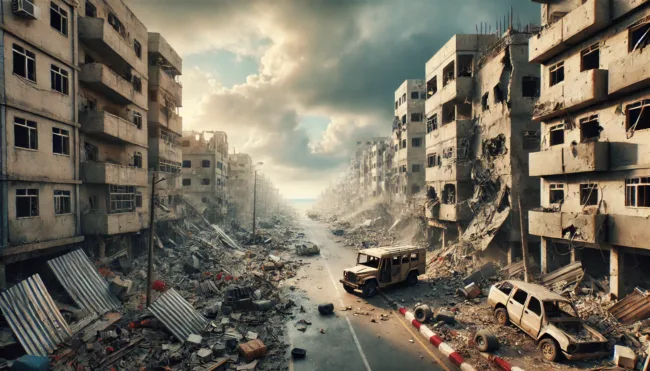Escalation in Gaza: Israeli forces advance in Shejaia and Rafah amid ongoing conflict
Israeli forces have intensified their operations in Gaza, making significant advances in both Shejaia in northern Gaza and central and western Rafah in the south. This escalation has resulted in at least six Palestinian deaths and the destruction of several homes, according to local residents.
As of Sunday, Israeli tanks re-entered Shejaia, a neighborhood previously targeted, and launched a series of shell attacks on residential areas. This aggressive maneuver trapped many families within their homes. Concurrently, the Israeli military confirmed the elimination of several Palestinian gunmen and the destruction of military infrastructure in Shejaia. In Rafah, situated near the Egypt border, deeper incursions by Israeli tanks have been reported, with a house strike in Shaboura leading to six fatalities—all members of the Zurub family.
The armed factions of Hamas and Islamic Jihad have engaged in fierce combat with Israeli forces, utilizing anti-tank rockets and mortars. Despite Israel’s prolonged military campaign, which has now extended over eight months, these groups continue their resistance in regions claimed to be under Israeli control. The death toll from Israel’s retaliatory strikes following an initial Hamas-led attack on southern Israel on October 7 stands at nearly 38,000, predominantly civilians, as per Gaza’s health ministry.
Efforts by Arab mediators, supported by the United States, to broker a ceasefire have not yet been successful. Hamas insists on a ceasefire that ends the war and includes an Israeli withdrawal from Gaza. Conversely, Israel’s stance remains focused on temporary halts in combat, contingent upon the total eradication of Hamas, which has been the de facto governing body of Gaza since 2007.
The conflict has had a devastating impact on the region, with the Gaza health ministry reporting significant civilian casualties and extensive damage to infrastructure. More than 300 Israeli soldiers have also lost their lives. The Israeli military continues its targeted operations in Rafah, aiming to dismantle remaining Hamas battalions and their associated infrastructure, including tunnels.
The current strategy of repeated military interventions without a long-term peace strategy may not lead to a sustainable resolution. The ongoing cycle of violence highlights the urgent need for a viable peace process that addresses the root causes of the conflict and involves all stakeholders.
As the conflict in Gaza shows no signs of abating, the international community remains watchful, hoping for a resolution that can bring lasting peace to the region.
Discover more from Business-News-Today.com
Subscribe to get the latest posts sent to your email.


